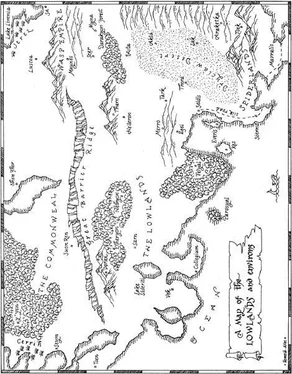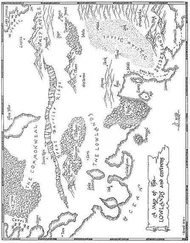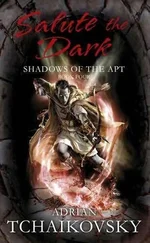Adrian Tchaikovsky - Dragonfly Falling
Здесь есть возможность читать онлайн «Adrian Tchaikovsky - Dragonfly Falling» весь текст электронной книги совершенно бесплатно (целиком полную версию без сокращений). В некоторых случаях можно слушать аудио, скачать через торрент в формате fb2 и присутствует краткое содержание. Жанр: Фэнтези, на английском языке. Описание произведения, (предисловие) а так же отзывы посетителей доступны на портале библиотеки ЛибКат.
- Название:Dragonfly Falling
- Автор:
- Жанр:
- Год:неизвестен
- ISBN:нет данных
- Рейтинг книги:5 / 5. Голосов: 1
-
Избранное:Добавить в избранное
- Отзывы:
-
Ваша оценка:
- 100
- 1
- 2
- 3
- 4
- 5
Dragonfly Falling: краткое содержание, описание и аннотация
Предлагаем к чтению аннотацию, описание, краткое содержание или предисловие (зависит от того, что написал сам автор книги «Dragonfly Falling»). Если вы не нашли необходимую информацию о книге — напишите в комментариях, мы постараемся отыскать её.
Dragonfly Falling — читать онлайн бесплатно полную книгу (весь текст) целиком
Ниже представлен текст книги, разбитый по страницам. Система сохранения места последней прочитанной страницы, позволяет с удобством читать онлайн бесплатно книгу «Dragonfly Falling», без необходимости каждый раз заново искать на чём Вы остановились. Поставьте закладку, и сможете в любой момент перейти на страницу, на которой закончили чтение.
Интервал:
Закладка:
‘Wait,’ she said. There were tears in her eyes and he wondered dully if they were genuine.
‘I’m waiting.’
He could feel her Art touching him again, feeling at the edges of his mind and trying to find a way in. It must have been just instinct for her, her last defence, still trying to sway him because she did not really believe what he said. She thought this was a trap. Her lips moved but she said nothing.
‘No words,’ he said tiredly. ‘No thanks, even. I’m sorry but I don’t even know if I could believe that.’
He turned and walked out, and then told the warden that she could go. As he reached the door he looked back and saw her emerging cautiously from the cell, testing the first steps of her freedom.
He left then, set off for his house at last. He had probably made a mistake, and he hoped he would be the only one to suffer for it. It had been lies and pretence, and he had been a fool, as he still was, but for the few days that she had been with him she had made him feel young, and made him happy.
Nothing he had done in the defence of his city had sat well with him, the horrors of the naval assault recurring over and over, but he found that, when he remembered that he had freed her, the pawn of his enemies, he slept easily.
The next day the Vekken came against the wall in force. During the night they had brought up their remaining artillery, and the dawn saw great blocks of their infantry assembled behind their siege engines. There were massive armoured ramming engines aimed, three each, at the north and west gates, and both those walls already had a full dozen automotive towers ready to bring the Ant soldiers to the very brink of the walls.
The harbour mouth was still blocked by the pair of ruined armourclads, and the buildings nearest the wharves had been abandoned after the incendiary shelling from the Vekken flagship. Stenwold had Fly messengers on the lookout who would fetch him if the ships started moving again, but he could not meanwhile just sit idle. Against Balkus’s protests he made his way over to Kymon on the west wall.
There had been some fighting here the previous day. The Ants had made assaults at the gate, and one of the siege towers stood at half-extension, a burned-out shell only ten yards from the wall itself. The wall artillery had obviously been busy, and would be still busier today.
Stenwold made his hurried way along the line of the defenders. Most of them now had shields, he saw, which he knew was a reaction to the crossbow casualties of the previous day. The Ants had advanced far enough on one earlier assault that some of those shields were the rectangular Vekken type the attackers used.
‘War Master,’ some of them acknowledged him, to his discomfort. Others saluted, the fist-to-chest greeting of the city militia. They all seemed to know him.
Out beyond the wall, without any signal that could be perceived, every Ant-kinden soldier suddenly started to march. The engines of the rams and towers growled across towards the defenders through the still air.
‘They’re coming in faster this time,’ Kymon said, striding up to him, and it did seem to Stenwold that the engines were making an almost risky pace of it, bouncing over the uneven ground. Close behind them the Ant soldiers were jogging solidly in their blocks.
‘Ready artillery!’ Kymon called, and the same call was taken up along the wall. ‘They’re going to rush us!’
‘Master Maker!’ someone was calling in a thin voice, and Stenwold turned to see a man he vaguely recognized from the College mechanics department.
‘Master Graden,’ he now recalled.
‘Master Maker, I must be allowed to mount my invention on the walls!’
‘This isn’t my area, Master Graden.’ But curiosity pressed him to add, ‘What invention?’
‘I call it my sand-bow,’ said Graden proudly. ‘It was made to clear debris from excavations, but I have redesigned it as a siege weapon.’
‘I’m not an artificer. Do you know what he’s talking about?’ Kymon growled.
‘Not so much,’ Stenwold admitted.
Then the Ant artillery started shooting, and abruptly there were rocks and lead shot and ballista bolts falling towards the wall, and especially towards Collegium’s own emplacements. Stenwold, Kymon and Graden crouched under the battlements, feeling more than hearing as their wall engines returned the favour. Stenwold risked a look at the advancing forces and saw, almost in awe, that Kymon had been right. Behind the speeding engines, the Ant soldiers were no longer in solid blocks that would make such tempting targets for the artillery. Instead they were a vast mob, a loose-knit mob thousands strong, surging forwards behind their great machines.
And they would be able to form up on command, he knew, each mind instantly finding its place amongst the others.
‘Can it hurt? His device?’ he shouted at Kymon over the noise.
Kymon gave an angry shrug and then ran off down the line of his men, bellowing for them to stand ready, to raise their shields.
‘Get the cursed thing up here!’ Stenwold ordered Graden, and the artificer started gesturing down to where his apprentices were still waiting with his invention. It looked like nothing so much as a great snaking tube thrust through some kind of pumping engine.
‘What will it do?’ Stenwold asked. Another glance over the wall saw the Ants’ tower engines ratcheting up, unfolding and unfolding again in measured stages, with Ant soldiers thronging their platforms and more climbing after them. Crossbow quarrels started to rake the wall, springing back from shields and stone, or punching men and women from their feet and over the edge, down onto the roofs of the town.
‘It will blow sand in their faces!’ Graden said enthusiastically. ‘They won’t be able to see what they’re doing!’
True enough, Stenwold saw that one end of the tube had a vast pile of sand by it. The other was being hauled onto the wall, with the great engine, the fan he supposed, hoisted precariously onto the walkway.
The nearest tower was almost at the level of the wall-top as Graden’s apprentices wrestled the sandbow into place, and then the artificer called out for it to start. All around them the defenders of Collegium, militia, tradesmen, students and scholars, braced themselves for the coming assault.
Twenty-Nine
Parosyal had white beaches, a sand that gleamed as brightly in the sun as the sun itself. Nothing on the mainland could match it, nor any other isle along the coast. A hundred Beetle scholars had written theories to explain it.
There was only one safe harbour at Parosyal, Tisamon had explained, and she had understood that by ‘safe’ he was not referring to anchorage or the elements.
Parosyal was a mystery, and one that history had ignored: the sacred isle of the Mantis-kinden. The slow march of years had seen Collegium scholars baffled by it, Kessen fleets avoid it, and opportunistic smugglers or relic-hunters disappear there, never to be seen again.
‘Every one of my kinden seeks to come here, once at least in a lifetime,’ Tisamon explained, and she knew he was confirming that she, too, was his kinden. ‘They come from Felyal, from Etheryon and Nethyon. From across the sea, even. From the Commonweal.’
‘That’s a long haul,’ she said.
He nodded. ‘This is our heart.’
‘But why?’ she asked. ‘Surely not. gods?’ She knew that, long ago, some ancient peoples had tried to make sense of the world by giving faces to the lightning and the sea. Perhaps some savages still did, in lands beyond known maps, but in these days nobody halfway civilized held that they were subject to the will of squabbling and fickle divinities. Achaeos had told her that the Moth-kinden believed in spirits, but ones that could be commanded, not ones that must be obeyed. And then of course there were the avatars of the kinden, the philosophical concepts that were the source of the Ancestor Art, but they were just ideas , aids to concentration. Nobody thought that they actually existed somewhere.
Читать дальшеИнтервал:
Закладка:
Похожие книги на «Dragonfly Falling»
Представляем Вашему вниманию похожие книги на «Dragonfly Falling» списком для выбора. Мы отобрали схожую по названию и смыслу литературу в надежде предоставить читателям больше вариантов отыскать новые, интересные, ещё непрочитанные произведения.
Обсуждение, отзывы о книге «Dragonfly Falling» и просто собственные мнения читателей. Оставьте ваши комментарии, напишите, что Вы думаете о произведении, его смысле или главных героях. Укажите что конкретно понравилось, а что нет, и почему Вы так считаете.












